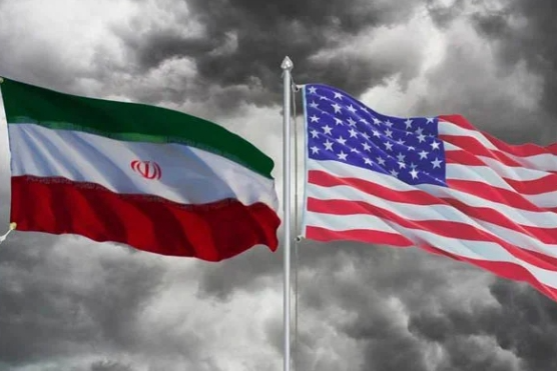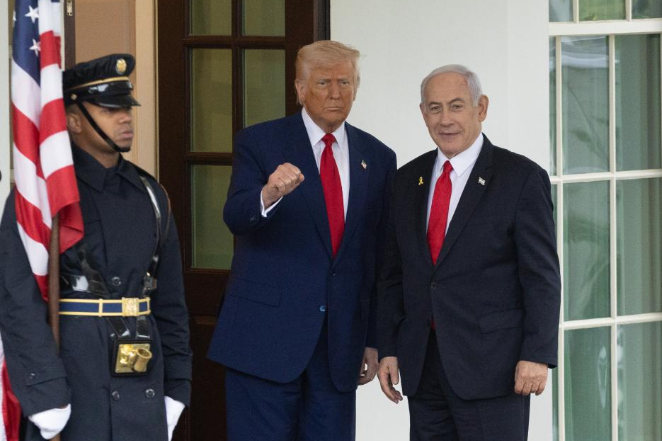US tariff blitz risks global ramifications
Experts lambaste move as economically unsound, unlikely to attain stated goals


The latest tariffs announced by the Trump administration are unlikely to achieve their stated goals, pose a significant risk to the global economy and violate international trade commitments, experts warn.
"In the World Trade Organization, the US agreed on a detailed schedule of 'bound' — meaning upper limit — tariffs on virtually all merchandise imports, but Trump's tariffs completely violate this basic commitment made to other countries through the WTO," said Gary Hufbauer, a nonresident senior fellow at the Peterson Institute for International Economics in Washington.
US President Donald Trump unveiled his "reciprocal tariffs" on Wednesday, citing an "economic emergency". He introduced a 10 percent baseline tariff on goods imported from nearly all trading partners, excluding Canada and Mexico, and individualized tariffs targeting about 60 economies for what he called unfair trade practices.
He said the tariffs aim to address long-standing trade imbalances and boost domestic manufacturing.
Hufbauer criticized the US decision to impose broad new levies on imports, dismissing the stated objectives of reducing the country's trade deficit, protecting domestic industries and encouraging the reshoring of manufacturing.
"The reasoning is faulty," he said. "Back in the 1970s, many countries tried 'import substitution' policies to become manufacturing powers-Brazil, India, for example — and they all failed. High US tariffs will not revive US manufacturing."
Sourabh Gupta, a senior fellow at the Institute for China-America Studies in Washington, agreed, saying Trump's reasoning will not bear fruit. "The cause of the trade deficit ranges much beyond the level of foreign tariffs and is intimately connected with domestic savings and consumption rates."
Hufbauer decried the methodology for setting specific tariff rates, which target economies that have large trade surpluses with the US, such as China, with much higher penalties.
"The method of calculation has nothing to do with tariff and nontariff barriers imposed by foreign countries on US exports," Hufbauer said. "The rates above 10 percent are all driven by the US bilateral merchandise trade deficit with the foreign partner."
Gupta criticized the approach as "a silly concoction to use the US' bilateral trade deficit with a partner country as a proxy for supposed unfair practices", which "ignores basic trade policy 101 lessons".
Raj Goyle, a former Kansas state legislator and co-CEO of the US legal technology company Bodhala, said the tariffs are not truly reciprocal as claimed.
"The calculation appears to be based on trade surpluses rather than actual tariff rates, making them arbitrary rather than balanced."
Among the 60 or so economies targeted by additional tariffs, China faces a particularly high combined rate — though not the highest — potentially reaching 54 percent on many goods. Hufbauer predicted that would have severe consequences for the bilateral relationship.
"Trump's tariffs, plus Chinese retaliation, will sharply reduce US-China trade. Both countries will lose," he said. "My guess is that two-way trade will be cut by 60 percent or more."
Gupta said that with the combined tariffs potentially reaching 54 percent on many Chinese goods, plus existing tariffs and the removal of exemptions, China's exports to the US will decline steeply.
"China's countermeasures mean that US exports, too, will take a material hit," he said. "Both sides will suffer, with concentrated groups of Chinese exporters and a wide swath of American consumers bearing much of the brunt."
Potential escalation
Hufbauer also warned of the risk of broader international retaliation and potential escalation. But he outlined a scenario where a full global trade war might be averted.
"Hopefully, other countries will confine their responses to retaliation against the US, not against other countries," he said. "If other countries are sensible, there will not be a global trade war as occurred in the 1930s."
As a countermeasure, China said it will impose an additional 34 percent tariff on all US-origin imports starting on Thursday.
"This will be a global trade war that is not fought globally but is fought against just one country — the US — by most other countries," Gupta said. While there is a window for negotiation, it is narrow because of the underlying motivation related to the trade deficit, he added.
Hufbauer said the tariffs will bring down US participation in globalization, much to the disadvantage of the US, but they need not bring an end to globalization, provided other major economies are sensible and respond strategically.
Gupta shared a similar view: "The US may be stepping out of the globalization dance. But for most other countries, such as China, Japan, South Korea, and economic areas, such as the European Union and Mercosur, ties of interdependence and globalization continue to deepen in most contexts — despite the imperatives of national economic security."
Hufbauer said: "Other countries can liberalize trade between themselves. The EU-Mercosur pact is one example. China has been quite active in free trade agreements," he said, highlighting the Regional Comprehensive Economic Partnership.
"My guess is that Trump will lower tariffs on items that previously had zero tariffs — things not produced in the US — in exchange for various favors," he said.

































